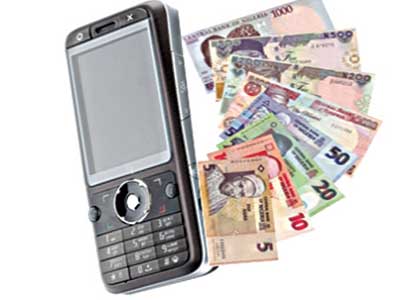 The low-level penetration and snail-paced adoption of mobile money in Nigeria and the rest of Sub-Saharan Africa (SSA) has been linked to twin issues of lack of awareness and low appreciation of the inherent benefits.
The low-level penetration and snail-paced adoption of mobile money in Nigeria and the rest of Sub-Saharan Africa (SSA) has been linked to twin issues of lack of awareness and low appreciation of the inherent benefits.
Besides, even as mobile money services become part of the daily life of millions in the sub-region, many potential customers face basic barriers to accessing the services on their mobile phones, as well as unwilling to key into the initiative.
A study commissioned by Ericsson– a world provider of communications technology and services, showed that among the lower socio-economic groups in SSA, four out of 10 lack basic prerequisites for starting their own mobile money account.
While the financial inclusion drive may have hit high gear in Nigeria and other SSA countries, there were indications from the report that much is still left to be desired, especially in a situation where 63 per cent of respondents are unbanked, and 52 per cent use mobile money through agents, rather than their phones.
For example, in Nigeria, the report showed that while 95 per cent of the population has mobile phone, transactions are high in cash-based, 63 per cent has inadequate means of identification; only 47 per cent save with banks; 69 per cent use banks to send money; and paltry two per cent of those who save with banks get access to loans.
The Senior Advisor, Ericsson ConsumerLab, Patrik Hedlund, said that for the large, unbanked proportion of society, cash is the predominant way of receiving and making payments, as well as saving and borrowing.
He, therefore, maintained that since more people have mobile phones than bank accounts, mobile financial services offer a stepping-stone to financial inclusion.
“Consumers have to make long journeys to reach the location where they can pay their bills. Saving money and taking loans also becomes problematic in unbanked Africa, with many hiding cash in their homes and relying on informal lenders who charge high interest rates. So, mobile money is really beneficial to them – if they can use it.
“Lower income people and the unbanked are the ones who are least involved in the formal financial system, due to factors such as distance to banks, education, and the inability to authenticate their identity,” Hedlund said.
The Vice President, Strategy and Marketing, SSA, Tumi Chamayou, noted that the in the 10 years, communications and financial services landscapes have not been the same, as currently, the mobile penetration target by 2020 is one billion in the region, from 600 million subscriber base.



